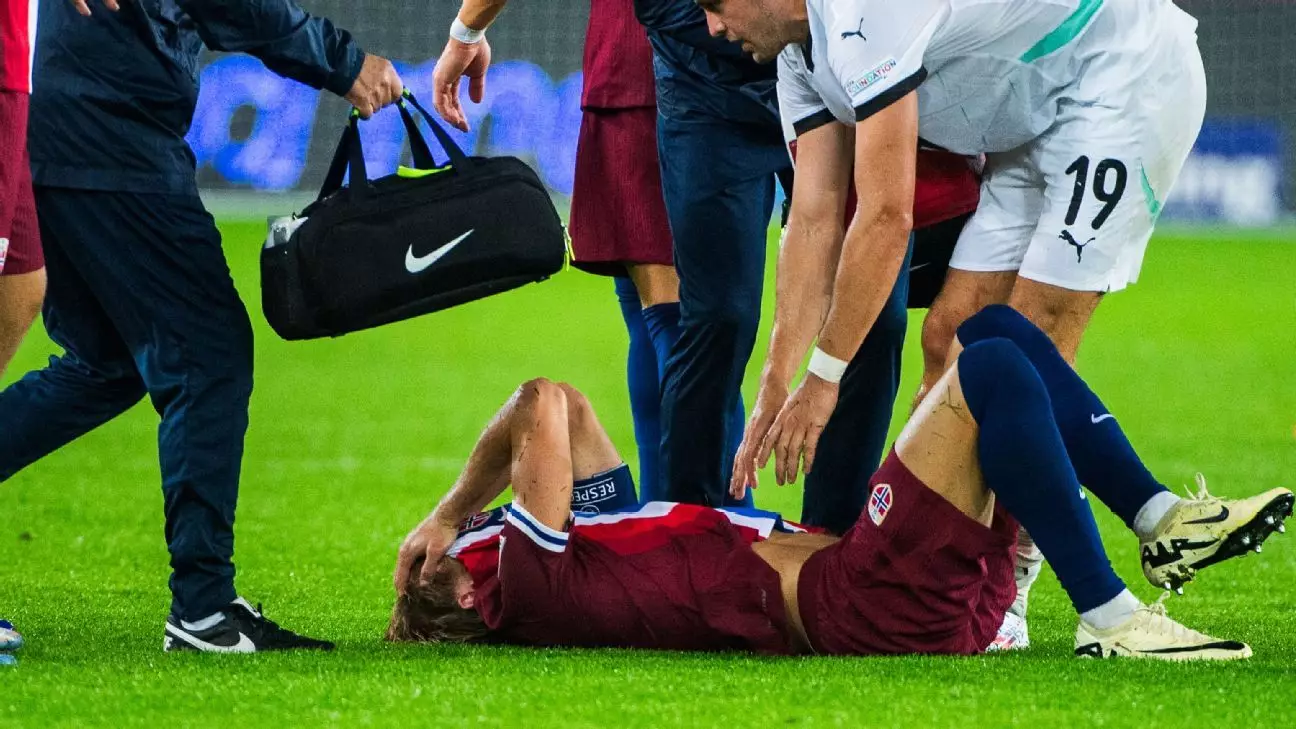Arsenal Football Club is confronting a significant obstacle following the injury of their captain, Martin Ødegaard. During a Nations League match against Austria on September 9, the midfielder sustained a severe ankle injury. This unfortunate event has not only affected Ødegaard’s participation but has also raised alarm bells within the club regarding their immediate future in both domestic and European competitions. Manager Mikel Arteta has confirmed that Ødegaard will be sidelined for an undetermined length of time, a situation that has left fans and analysts alike pondering the implications for the team’s performance.
Ødegaard’s absence carries profound implications for Arsenal. Known for his creativity, vision, and leadership on the pitch, the 25-year-old has played an essential role in shaping the team’s playing style. His dynamic presence in midfield is hard to replicate, making this injury a considerable blow to the Gunners. Arteta pointed out the importance of Ødegaard’s contributions by stating, “He’s our captain. He’s been one of the biggest and best players in our team.” His influence reaches beyond just his playing ability; Ødegaard embodies the team’s identity and ethos, which raises the question of how Arsenal will adapt in the short term to compensate for his absence.
In light of this setback, Arsenal will need to quickly recalibrate their strategies. With upcoming fixtures in the Premier League and Champions League, the tactical adjustments become paramount. Arteta faces the daunting task of finding a way to maintain competitiveness without one of his most pivotal players. It will be crucial for the coach to identify players who can step up and share the creative responsibilities that Ødegaard typically shoulders. This might involve a shift in formations or the introduction of younger talent from the academy. Successful navigation through this difficult period could be a litmus test for the club’s depth and resilience.
As Ødegaard begins his recovery, support from teammates and coaching staff will play a vital role in keeping morale high. Norway’s national coach, Stale Solbakken, remarked on the need for a steady, week-by-week approach to rehab, emphasizing a measured recovery process. This sentiment resonates not only on a national level but also within Arsenal’s camp, where patience and resilience will be key. The hope is that Ødegaard’s recuperation does not extend into months, particularly with Arsenal currently trailing behind league leaders Manchester City by a mere two points.
As the team gears up for their opening Champions League clash against Atalanta, the challenge is not just tactical but emotional. The absence of Ødegaard places an onus on players to rise to the occasion, which adds pressure but also presents an opportunity for others to showcase their abilities on the big stage. Arsenal stands at a crossroads, facing a critical moment in their season that could define their ambitions. How they adapt to Ødegaard’s injury will be closely watched by fans and critics, shaping the narrative of their campaign moving forward.

